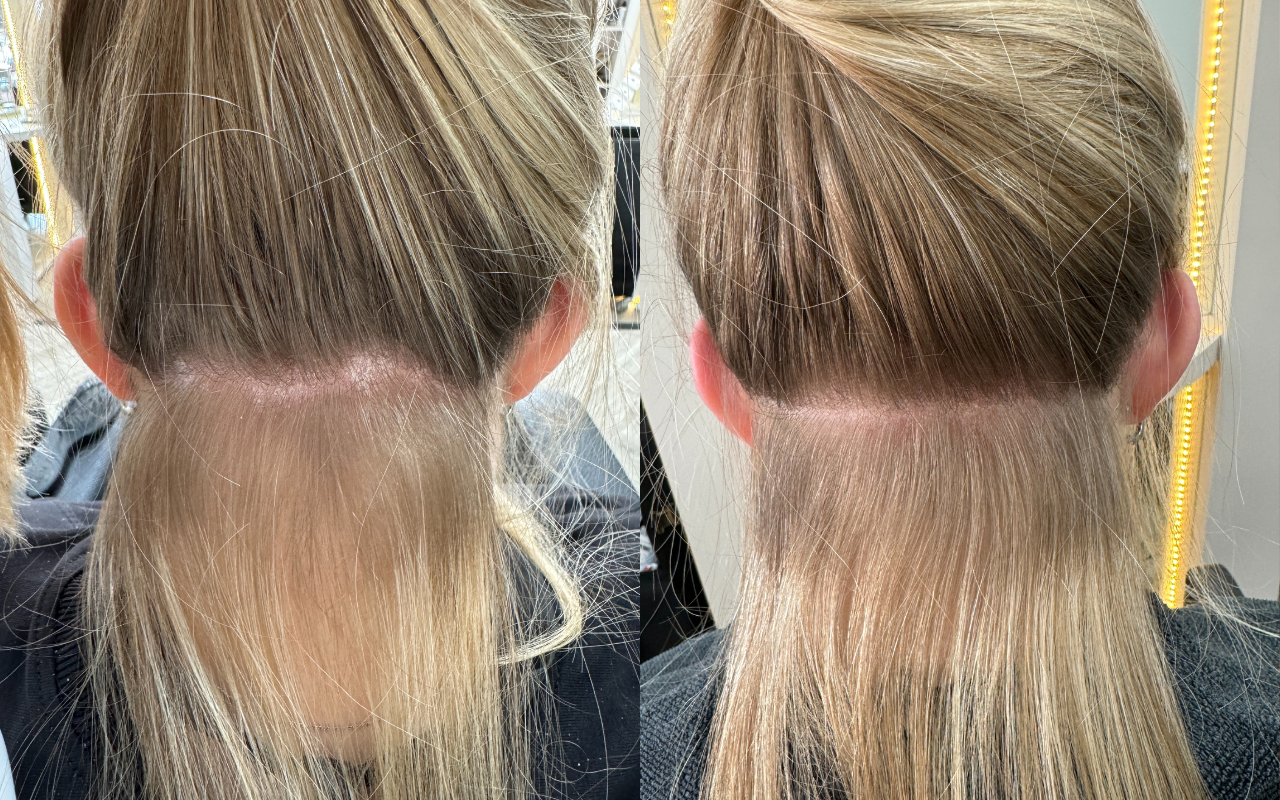Ever wondered what damage hard water is doing to your hair?
Have you ever washed a plate or a glass and noticed that its not crystal clear and there is a limescale slight residue on it afterwards? This is the effect of ‘hard water’. If it’s doing that to your dishes, imagine what it does to your hair.
This map gives us a visual representation of the water disparity across the UK. We're all showering in water with different minerals in it! Have a look at how hard your water is.
Source: AQUABION
Hard water has a high level of minerals in it. Normally it contains calcium, magnesium, carbonate, bicarbonate and sulphates. When rainwater filters through rocks it naturally picks up these minerals and while they aren’t generally harmful to health, they can give your hair a hard time. The minerals in the water react with shampoos, conditioners and soaps to reduce effectiveness. The reaction can create also create a salty residue on the surface of your hair and scalp. This film then stops the moisturisers in your conditioner from absorbing, leaving your hair dry and tangly.

Don’t worry though, the downsides of hard water can be combated, and it is easy to manage it once you know how!
Ways to Combat Hard Water
Using a Filter
Installing a mineral shower head can be really beneficial to filter and purify your shower water. These heads contain minerals to help neutralise the harsh impurities in hard water. Tourmaline alkaline balls and Ceramic balls are known toto remove chloramine, chlorine, scale and a multitude of other impurities. Zeolite stone balls are also good at softening the water removing calcium and magnesium ions. This is one solution to help restore your hair before the water even touches your it!
Showering right
The best way to rectify hair to its natural glory is to remove the build up of minerals that hard water brings about. Using a shampoo and conditioner that are sulphate free are key to help remove excess oil and debris without stripping the hair of what it needs. To understand more about the harmful effects of sulphates you can have a look at ‘why you need to change to sulphate and silicone free products’. Our Daily Calma Shampoo and Conditioner are a good option for gently removing daily build up while nourishing the scalp and hair. Rinsing the hair in the direction of natural growth (from the crown toward to the forehead) can help to prevent hair loss and thinning.
The Salicylic acid in our En Root Scalp Treatment is also great help for a flaky scalp as it works to dissolve dead skin cells. As the minerals of hard water accumulate they can create thick patches of dry skin and salicylic acid helps to break down these patches whilst improving moisture.
Lastly, if you’re brave enough, ending your shower with cold water, can seal your cuticles and prevent them from letting in build up of unnecessary minerals and dirt.
Home remedies
Mixing three cups of water and a table spoon of apple cider vinegar can help alleviate the drying effects of hard water. This mixture is a good option as it lowers the hair’s pH and contains healthy-hair vitamins such as vitamin B and C. Work the solution through wet hair, leave it on for five minutes and then rinse out thoroughly. Our En Root Scalp Treatment can also be used focusing on helping to give life back to a dry and flaky scalp.

Sometimes solving hair damage can begin right at the source: the water source. Your hair will definitely appreciate these tips to minimise hard water’s effects and we hope they put a bit of life back into your locks.
If you have any questions we are here as always, just drop us an email at hello@wearecentred.com.
You can stay in touch with us on social @wearecentred.




